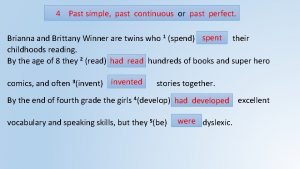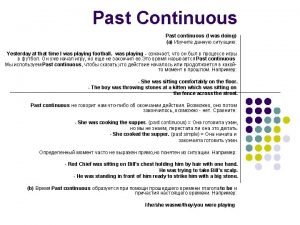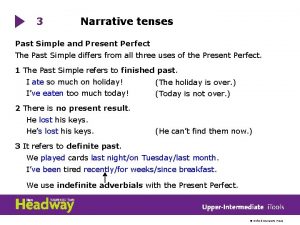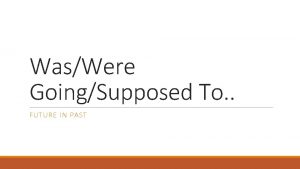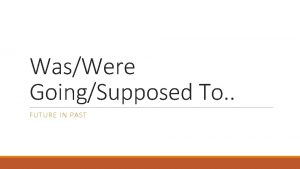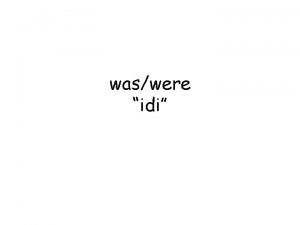WasWere GoingSupposed To FUTURE IN PAST Future in







- Slides: 7

Was/Were Going/Supposed To. . FUTURE IN PAST

Future in Past Sometimes we make plans for the future, but the plans don't actually happen. Speakers of English use was/were + 'going to' + base verb(without 'to') to look back at the plans we made but didn't do. I was going to visit my uncle in Thailand last Spring, but I couldn't afford a ticket. I was going to wash the dishes, but there wasn't enough time. I was going to go to Poland for Christmas, but I stayed in France. Time expressions can be used if the speaker wants to say when the action should have happened. I was going to visit my uncle in Thailand last Spring.

But it is not always necessary to use a time expression. I was going to wash the dishes. I was going to meet a gorgeous man. He was going to be funny, and rich too. When the subject of the sentence is I/he/she/it, use 'was'. I was going to meet a gorgeous man. He was going to be funny, and rich too. When the subject of the sentence is you/we/they, use 'were'. We were going to get married.

Future in the Past is used to express the idea that in the past you thought something would happen in the future. It does not matter if you are correct or not. Future in the Past follows the same basic rules as the Simple Future. "Would" is used to volunteer or promise, and "was going to" is used to plan. Moreover, both forms can be used to make predictions about the future. I told you he was going to come to the party. plan I knew Julie would make dinner. voluntary action Jane said Sam was going to bring his sister with him, but he came alone. plan I had a feeling that the vacation was going to be a disaster. prediction He promised he would send a postcard from Egypt. promise

Was / were going to, and was / were supposed to

Was/were Going to

Was/were Supposed to



